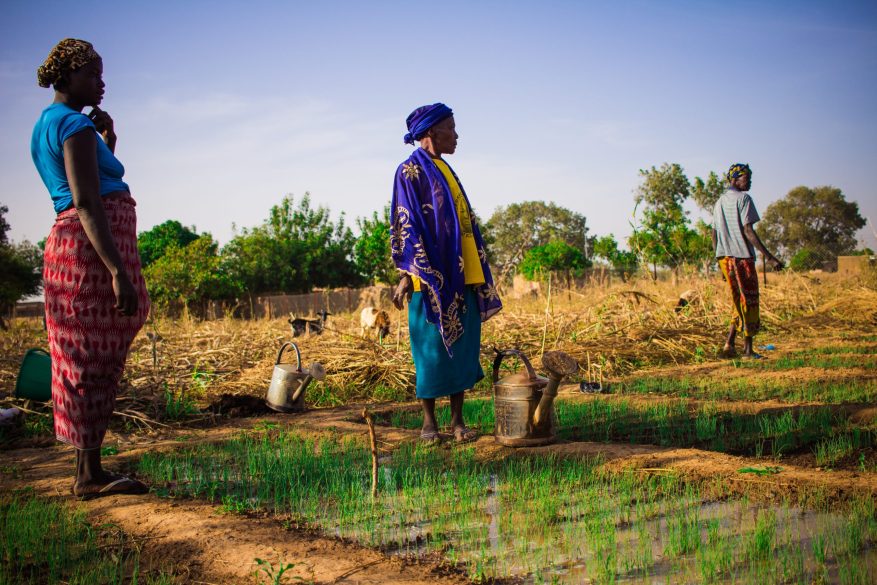Members of Gasma women’s group, Kourweogo Province, Burkina Faso.
International Day of Rural Women 2023 takes place on October 15th under the theme: “Rural women confront the global cost-of-living crisis.”
The spiralling costs of food, fuel and fertiliser that were triggered by the war in Ukraine has reversed years of progress in the fight against poverty. In turn, this, has increased the numbers of extreme poor in Africa to over 278 million. Most of these people live in rural communities and many of them are women.
The cost-of-living crisis has intensified gender disparities, leading to an increase in the gender gap in food security. Women – particularly rural women – are already disproportionately affected by poverty, climate change, food insecurity and poor access to healthcare. This has affected women generally, but especially rural women.
Rural women are the backbone of African agriculture. They produce over 70% of the food on small farms. But less than 15% of landholders worldwide are women. If women received the same access to land, tools, technology and other supports as men, they could produce up to 30% more food. This could potentially lift almost 150 million people out of poverty.
Supporting rural women – by providing access to farming inputs, to land, to markets and to small loans – will contribute to the creation of fairer societies, where women are better rewarded for their efforts. At Self Help Africa, we empower rural women so that they can take charge of their lives and create lasting positive change in their communities.
One of the ways we are working with rural women is through Women’s Business Centres, a women-led social enterprise model for sustainable development – working for the economic and social empowerment of women. Women’s Business Centres combine new technology and traditional practice to build and strengthen local economies. The model has proved a huge success in Bangladesh and across Africa, new Centres are being formed in Nigeria, Kenya, and Malawi to connect a further 60,000 people to locally-delivered services and resources.
Raising community awareness about the importance of women accessing resources, power and leadership is also essential to secure long-term positive change. Strengthening the role of women in agriculture is essential if we are to achieve sustainable farming for future generations.

